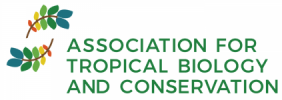Understanding the Asian songbird crisis: supply and demand within Java’s huge captive bird market
Project summary
The pet trade on Java has devastated the island’s wild bird populations, and its influence extends across Indonesia and far into other adjacent Asian nations, fueling the Asian Songbird Crisis. Conservation-motivated research on the issue has thus far focused on wildlife market surveys, the link between trade volume and wild bird population declines, and the efficacy of blanket bans on trade. However, little attention has been paid to what drives the desire for people to continue to want birds in cages, how patterns of ownership vary across time and space, and demographically. This PhD, joint funded by Chester Zoo and MMU, aims to identify patterns of demand for, and supply of, songbirds on Java in order to provide evidence in support of strategies to reduce demand for, and pragmatically, more sustainable supply of birds into trade.
Project aims and objectives
The PhD aims to identify patterns of demand for, and supply of, songbirds on Java in order to provide evidence in support of strategies to reduce both demand for, and ensure a more sustainable supply of birds into trade. This will be achieved through the following objectives.
- Patterns of demand.―To identify, through an extensive island-wide survey, past and current patterns and volume of songbird ownership. Results will be used to track changes in songbird ownership (which may include birds kept as pets or used in singing competitions) over time and the factors that drive them, estimate total ownership volumes for key bird species across the whole island, and to relate this to abundance and population trends of species in the wild.
- Sociology and geography of bird-keeping.―To examine bird ownership statistics across key social groups (e.g. affluent urban groups; traditional rural groups) and locations across Java. We will ask how and why bird ownership patterns have changed, and are likely to change in the future, which social groups aspire to own which species, the drivers fuelling desire to own birds, and the link between bird ownership and the desire to conserve wild birds.
- Systems of supply.―To examine songbird supply chains both of wild-caught birds and from captive breeding facilities that exist across Java. This research will address livelihood issues and the economics of different supply methods, and identify more ‘desirable’ systems in terms of sustainability and animal welfare.
- Developing workable solutions.―To use the results of 1–3 to make recommendations both to government and civil society user groups as to ways in which demand for cagebirds can be positively influenced, and their supply made more sustainable.
Specific requirements of the project
Applicants for this project should have relevant BSc/MSc qualifications in ecology or from the social science field.
This project will require both strong fieldwork and analytical skills including experience of analyzing large datasets. Preference will be given to those with a proven track record of use of both GIS and R (or other programming languages).
Experience of working abroad, especially in the tropics, is desirable, as is evidence of working in a diverse team, and under field conditions which will pose environmental and cultural challenges.
Either knowledge of, or a willingness and ability to learn a range of skills including speaking Bahasa Indonesia, use of social media in scientific research, and diverse analytical techniques.
Student eligibility
Home/EU students
Supervisory Team
Informal enquiries can be made to:
Informal enquiries can be made to:
Professor Stuart Marsden – 0161 247 6215 – s.marsden@mmu.ac.uk
Dr Nigel Collar – 01223 277 318 – nigel.collar@birdlife.org
Dr Alex Lees – alexander.lees@mmu.ac.uk
Dr Andrew Moss – 01244 389739 – a.moss@chesterzoo.org
How to apply
Please quote the reference: SJM20161.
Applications should be completed using the Postgraduate Research Degree Application Form.
Application Form should be emailed to: pgradmissions@mmu.ac.uk.
PLEASE NOTE that Section 9 of the application should be used to write a personal statement outlining your suitability for the study, what you hope to achieve from the PhD and your research experience to date.
Applications should be completed using the Postgraduate Research Degree Application Form
http://www2.mmu.ac.uk/study/postgraduate/apply/postgraduate-research-course/
Return the completed application to: pgradmissions@mmu.ac.uk
PLEASE NOTE: Section 9 of the application should be used to write a personal statement outlining your suitability for the study, what you hope to achieve from the PhD and your research experience to date.
Closing date
21 November 2016 – Applications received after this date will not be considered.
Interviews
TBC



